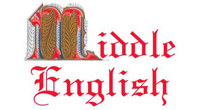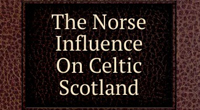The English vocabulary
The English vocabulary has changed considerably over the centuries. Like many languages deriving from Proto-Indo-European (PIE), many of the most common words in English can trace back their origin (through Germanic) to PIE. Such words include the basic pronouns I, originally ic, (cf. Latin ego, Greek ego, Sanskrit aham), me (cf. Latin me, Greek eme, Sanskrit mam), numbers (e. g. one, two, three, cf. Latin unus, duo, tres, Greek oinos «ace (on dice)», duo, treis), common family relationships such as mother, father, brother, sister etc (cf. Greek «meter», Latin «mater», Sanskrit «mat?»; mother), names of many animals (cf. Sankrit mus, Greek mys, Latin mus; mouse), and many common verbs (cf. Greek gign?mi, Latin gnoscere, Hittite kanes; to know).
Germanic words (generally words of Old English or to a lesser extent Norse origin) tend to be shorter than the Latinate words of English, and more common in ordinary speech. This includes nearly all the basic pronouns, prepositions, conjunctions, modal verbs etc. that form the basis of English syntax and grammar. An English speaker is in many cases able to choose between Germanic and Latinate synonyms: come or arrive; sight or vision; freedom or liberty. In some cases there is a choice between a Germanic derived word (oversee), a Latin derived word (supervise), and a French word derived from the same Latin word (survey). An exception to this and a peculiarity perhaps unique to English is that the nouns for meats are commonly different from, and unrelated to, those for the animals from which they are produced, the animal commonly having a Germanic name and the meat having a French-derived one. Examples include: deer and venison; cow and beef; swine/pig and pork, or sheep and mutton This is assumed to be a result of the Norman invasion, where a French-speaking elite were the consumers of the meat, produced by Anglo-Saxon lower classes.
Since the majority of words used in informal settings will normally be Germanic, such words are often the preferred choices when a speaker wishes to make a point in an argument in a very direct way. A majority of Latinate words (or at least a majority of content words) will normally be used in more formal speech and writing, such as a courtroom or an encyclopedia article. However, there are other Latinate words that are used normally in everyday speech and do not sound formal: mountain, valley, river, aunt, uncle, move, use, push and stay.
English easily accepts technical terms into common usage and often imports new words and phrases. Examples of this phenomenon include: cookie, Internet (technical terms), as well as genre, ?ber, lingua franca and amigo (imported words/phrases from French, German, modern Latin, and Spanish, respectively).
In addition, slang (highly informal use) often provides new meanings for old words and phrases.
 Latin influence on English
Latin influence on English Middle English
Middle English Old English. Norse influence. Celtic influence
Old English. Norse influence. Celtic influence